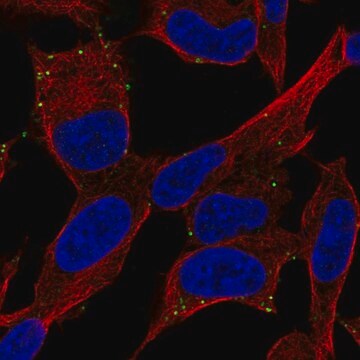About This Item
Recommended Products
form
liquid
availability
available only in Japan
pH
4.2-6.2
SMILES string
CN(C)c1ccc(cc1)\N=N\c2ccccc2C(O)=O
InChI
1S/C15H15N3O2/c1-18(2)12-9-7-11(8-10-12)16-17-14-6-4-3-5-13(14)15(19)20/h3-10H,1-2H3,(H,19,20)/b17-16+
InChI key
CEQFOVLGLXCDCX-WUKNDPDISA-N
Looking for similar products? Visit Product Comparison Guide
Suitability
Signal Word
Danger
Hazard Statements
Precautionary Statements
Hazard Classifications
Eye Irrit. 2 - Flam. Liq. 2
Storage Class Code
3 - Flammable liquids
WGK
WGK 1
Flash Point(F)
55.4 °F
Flash Point(C)
13 °C
Regulatory Listings
Regulatory Listings are mainly provided for chemical products. Only limited information can be provided here for non-chemical products. No entry means none of the components are listed. It is the user’s obligation to ensure the safe and legal use of the product.
FSL
Group 4: Flammable liquids
Alcohols
Hazardous rank II
ISHL Indicated Name
Substances Subject to be Indicated Names
ISHL Notified Names
Substances Subject to be Notified Names
JAN Code
40-1012-5-500ML-J:
Certificates of Analysis (COA)
Search for Certificates of Analysis (COA) by entering the products Lot/Batch Number. Lot and Batch Numbers can be found on a product’s label following the words ‘Lot’ or ‘Batch’.
Already Own This Product?
Find documentation for the products that you have recently purchased in the Document Library.
Our team of scientists has experience in all areas of research including Life Science, Material Science, Chemical Synthesis, Chromatography, Analytical and many others.
Contact Technical Service








